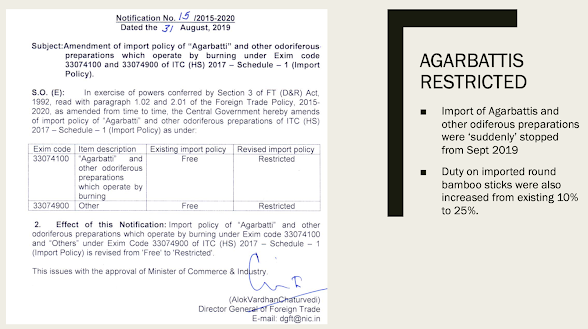The Indian Agarbatti exports case study - effect of import control

What happens if we restrict cheap imports coming into the country in an employment intensive sector? While a free trade economist would squirm in agony, policymakers are faced with such choices on daily basis. Navigating multilaterally agreed rules in order to create space for domestic industry to fight and survive is a tight balancing act. I present a case study where the policymakers made a choice under similar circumstances. Agarbatti (Incense sticks) industry in India is small in terms of turnover at around Rs 7000 crores (under USD 1 Billion). However, it is large in terms of employment per Rupee it generates. It employs close to 400,000 people, around 80 percent of whom are women (https://bit.ly/3oyNysO). Agarbatti industry also exports a significant amount of production and maintains leadership position in the world market. The leading competitor is China. Agarbatti manufacturing needs raw material - a premix powder popularly known as 'masala' - and bamboo sticks. Ove